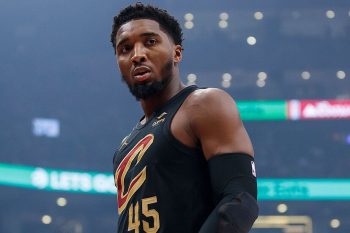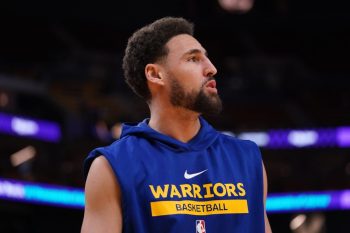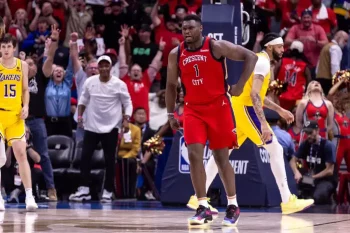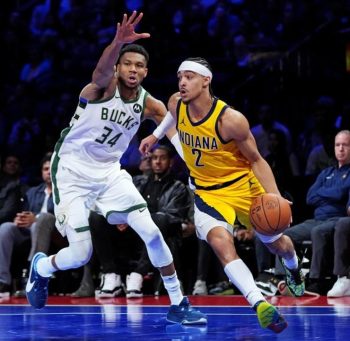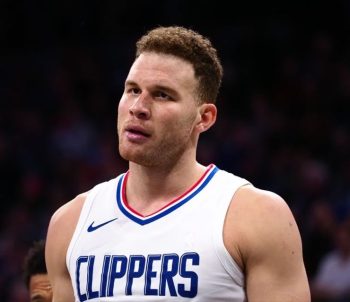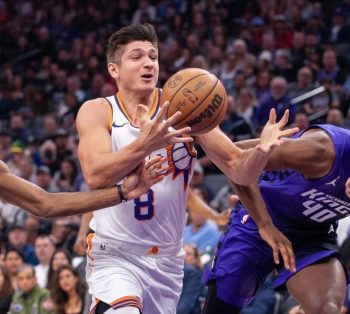NBA
Should The Knicks Pick Up Options On Young, Unproven Talent?

NBA teams face all kinds of decisions and, of course, most major decisions teams face have underlying financial implications. Naturally, Oklahoma City would have loved to re-sign Kevin Durant, Russell Westbrook, James Harden and Serge Ibaka following the 2012 season, but the prospect of paying the luxury tax seemed too prohibitive to ownership and general manager Sam Presti.
And like most other teams, the Knicks have plenty of big financial decisions to make very soon – namely, whether or not to offer long-term extensions or merely pick up their respective team options.
For context, teams must decide on rookie-scale extensions by Monday, Oct. 21 — the night before the beginning of the season — and they need to weigh fourth-year options for players with two years of experience and third-year options for those that signed their rookie deals last year by Oct. 31. Rookie deal third-and fourth-year options are still affordable enough that it makes sense to pick up most team options regardless if a player plays a major role or not – and if they do, the option becomes all-the-more affordable.
Now, most lottery picks see their third and fourth-year team options picked up. But the Knicks are in the unusual position of having to decide on all three prior to any of them demonstrating consistency or overly-productive play. The three currently eligible for extensions or team options are Frank Ntilikina, Dennis Smith Jr. and Kevin Knox. None have set themselves apart as a long-term starter. None of them are seen as a complete player. And each has his own well-documented limitations – but still, do the pros outmeasure the cons?
Ntilikina is a rock-solid defender — butut his production on the offensive end has been inconsistent and unreliable. He shot a mere 28.7 percent on three-point attempts last season with a 39.5 percent effective field goal percentage. Unfortunately, he has proven to be a non-factor in terms of scoring the ball consistently and he disappears entirely at times.
Smith Jr. can absolutely get buckets. His athleticism is a major positive and he’s a better defender than most people believe. But Smith Jr. has efficiency problems, too. In 2018-19, Smith Jr. shot only 32.2 percent on three-pointers and 63.5 percent from the free-throw line — both are far below what teams expect from a starting guard. Worse, those season totals are better than what he demonstrated in two and a half months in New York. Beyond that, his assist-to-turnover ratio (2.07) was below the league average for point guards last season.
Knox is younger and has less experience, so he deserves a little extra slack. Still, there are a number of knocks on Knox – specifically around defense and efficiency. According to cleaningtheglass.com, Knox’s assist percentage was in the sixth percentile among players at his position and his turnover percentage was in the tenth percentile. Somehow, he posted an equally horrid defensive rating and effective field goal percentage. Knox has lots of potential, but he also needs to make major improvements and make better decisions with the ball and on defense.
Re-signing any of the three to long-term deals is probably out of the question from a timing standpoint as there are only three days left to do so. And there’s probably limited desire to do so, anyway. But what about their third- and fourth-year options, should the Knicks pick them all up? The answer is simple – yes, and without hesitation, but let’s explore why:
The options for Smith Jr., Ntilikina and Knox are set at $5.68 million, $6.176 million and $4.58 million, respectively.
While the 2020 free agent class appears limited compared to recent seasons – there are no sure-fire All-Stars other than Anthony Davis – the Knicks maintained salary cap flexibility thanks to creative team options and one-year signings that cover literally every signing made this past offseason. So picking up all of the aforementioned options represents a commitment of more than $16 million, which will eat into the aforementioned flexibility they smartly invented just recently.
Well, yes — but there should be more space to use. However, the Knicks can’t know exactly where the salary cap will land next season – and it could end up significantly lower than previous estimates due to the current NBA-China beef – but the options represent three contributors to the roster, all of whom they can control for at least one more season. And remember, New York doesn’t have too much depth.
Beyond their young core. Smith Jr., Ntilikina and Knox will all play a role for the team. Looking back to last season, they played 21.0, 29.02 and 28.8 minutes per game as Knicks last season, individually. Those numbers should go up in 2019-20, and paying between $4.5 and $6.2 million apiece to play such large roles is mostly impossible elsewhere.
Thusly, approximately $16 million is a bargain for three contributors — but that becomes all the more obvious when we consider that the average salary was $6.38 million in 2018-19 – more than any of the individual option years. At 21, 21 and 20 years old, these three players should all take leaps forward in their respective development, meaning their salaries could become even more of a bargain than they are now. Further, the salary cap is $109 million this season and none of those options would represent even six percent of the 2019-20 cap.
Even if the Knicks played it frugally and declined their options in favor of cap savings, what would the Knicks even do with them? We’ve already established that the class is less-than-stellar; but what’s more, who’s to say any would be attracted to Madison Square Garden, anyway? The Knicks have had limited (and small) success(es) in free agency. That’s not to say they should give up. But it’s their reality and it’s on them to change it.
New York has suffered major culture setbacks in recent years that landed them exactly where they are. In reverse chronological order, there’s been: The public fallout of them being burned by 2019 free agents, Kristaps Porzingis asking to be traded, James Dolan having Charles Oakley escorted out of Madison Square Garden and all of the damage done by Phil Jackson (e.g., the “posse” fiasco and his public, passive-aggressive war with Carmelo Anthony). That only takes us back through 2014 and ignores the Isiah Thomas-era and the fact that they’ve won one playoff series in the past 18 years.
Having said all that, and despite what Presidential candidate Andrew Yang thinks, there’s finally a light at the end of the tunnel. But from a cost-efficiency standpoint, as well as to continue building a positive perception league-wide, the Knicks must pick up all three options. Ultimately, they’ll be better for in both the short- and long-term.
